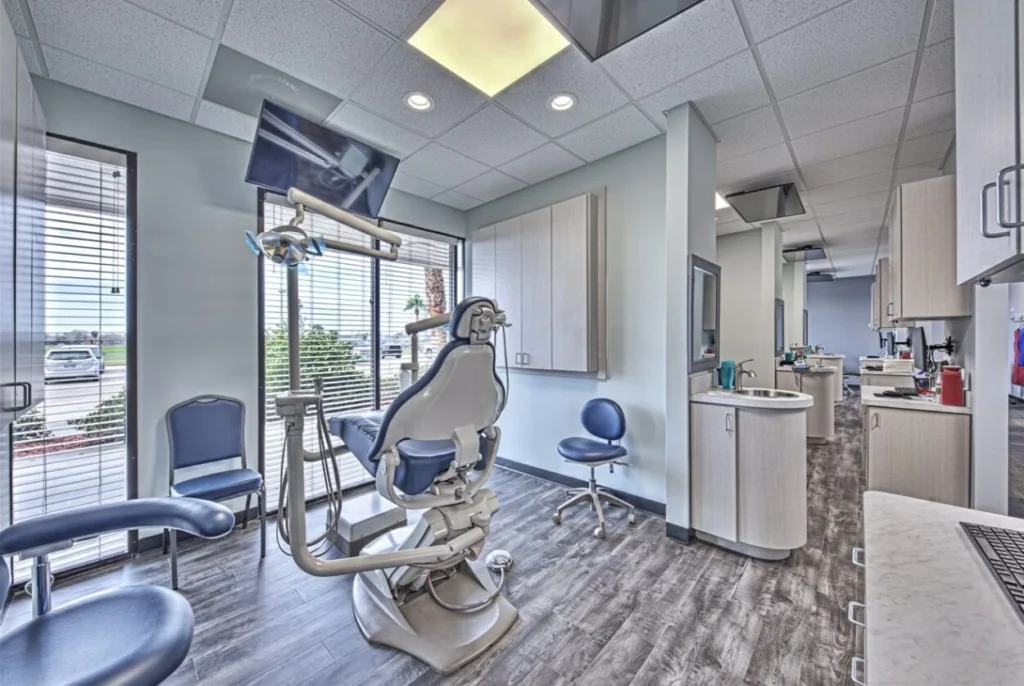Untreated pediatric sleep apnea damages developing bodies and brains. Heart strain from oxygen drops increases cardiovascular disease risk. Poor sleep disrupts learning, memory, and emotional control while slowing physical growth.
Sleep apnea is more than just snoring or restless nights. Dr. Scott Kennedy at Dynamic Family Dentistry in Clifton, TX sees the serious health impacts when this condition goes untreated. His training at Roseman University and residency in Waco taught him how breathing problems during sleep affect children’s development.
Many parents don’t realize how dangerous untreated sleep apnea becomes. The nightly oxygen deprivation compounds into serious health problems affecting every aspect of a child’s life.
Understanding the real risks motivates families to seek treatment promptly. Early intervention prevents most complications.
How Sleep Apnea Strains Young Hearts
Every breathing pause during sleep drops oxygen levels in the blood. The heart works harder to compensate. This pattern repeats dozens or hundreds of times each night.
Chronic oxygen deprivation stresses the cardiovascular system constantly. Blood pressure rises as the body fights to maintain adequate oxygen. Young children develop hypertension normally seen only in adults.
Heart muscle changes occur when forced to work harder night after night. The heart enlarges and weakens over time, increasing risk for heart disease later in life.
Cardiovascular risks:
- High blood pressure during childhood
- Enlarged heart muscle from overwork
- Increased heart disease risk in adulthood
- Blood vessel damage from oxygen fluctuations
- Irregular heartbeat patterns
Blood vessel walls suffer damage from repeated oxygen swings. Children with untreated sleep apnea face adult cardiovascular problems decades earlier than peers.
The younger a child is when damage begins, the more cumulative harm occurs. Early treatment prevents this cascade of damage.
Dr. Kennedy’s involvement with the American Dental Association and Texas Dental Association keeps him informed about systemic health connections.
Brain Development and Learning Suffer
Sleep is when young brains consolidate memories and process information. Disrupted sleep prevents this essential memory formation. Children with sleep apnea struggle to retain what teachers explain.
The prefrontal cortex controls attention, impulse control, and problem solving. This brain region is particularly vulnerable to sleep deprivation. Kids with untreated sleep apnea show measurable deficits in executive functions.
| Cognitive Impact | How It Affects Children | Long Term Consequences |
| Memory Problems | Can’t remember lessons | Falling behind academically |
| Attention Deficits | Can’t focus on tasks | Misdiagnosed with ADHD |
| Poor Impulse Control | Acts without thinking | Behavioral problems at school |
| Slow Processing Speed | Takes longer to understand | Appears less intelligent |
| Emotional Dysregulation | Mood swings, irritability | Social difficulties |
Academic performance declines as cognitive problems worsen. Grades drop, homework becomes impossible, and test scores suffer. Teachers often assume these children aren’t trying when sleep deprivation is the real problem.
Brain imaging studies show structural differences in children with untreated sleep apnea. Gray matter volume decreases in regions controlling memory and attention. These changes may become permanent without timely treatment.
IQ scores are measurably lower in children with chronic sleep apnea. The impact isn’t permanent if treatment begins early. But years of untreated apnea can cause lasting cognitive deficits.
Physical Growth Slows and Stops
Growth hormone releases primarily during deep sleep stages. Children with sleep apnea never reach or maintain deep sleep long enough. Their bodies produce inadequate growth hormone night after night.
Kids with untreated sleep apnea fall below expected growth curves. They’re noticeably shorter and smaller than peers.
Growth problems:
- Falling below expected height percentiles
- Lower than normal weight for age
- Delayed bone maturation
- Muscle weakness from poor sleep
- Delayed puberty
Some children gain excess weight despite poor sleep. Others fail to gain weight appropriately. Both patterns indicate serious dysfunction.
Bone density suffers when growth hormones aren’t produced adequately. Weaker bones increase fracture risk during childhood and osteoporosis risk later.
Treatment allows catch up growth in many children. Once breathing normalizes, growth hormone production resumes. Kids often show dramatic growth spurts within months of treatment.
Behavior and Emotional Control Deteriorate
Sleep deprived children can’t regulate emotions like well rested peers. Small frustrations trigger big reactions. They cry easily, anger quickly, and struggle to calm down.
Hyperactivity paradoxically increases with severe sleep deprivation. Exhausted children become overactive rather than tired. This leads to frequent ADHD misdiagnosis.
Impulsivity worsens as executive function declines. Children act without thinking, interrupt constantly, and can’t wait their turn.
Mood disorders develop in some children with chronic sleep apnea. Depression and anxiety rates are higher among kids with untreated breathing problems.
Social development suffers when behavior problems dominate interactions. Other children avoid kids who act out. Isolation worsens emotional problems and creates lasting social deficits.
Academic Failure Becomes the Pattern
Children with untreated sleep apnea consistently underperform academically. They score lower on tests than their intellectual potential suggests. The gap widens each year.
Reading comprehension suffers particularly. Exhausted brains can’t process complex text or maintain focus. Math skills decline as attention problems make following multi step problems impossible.
Homework completion drops as symptoms worsen. Missing homework compounds learning gaps and damages grades.
Special education placements occur frequently in children with undiagnosed sleep apnea. They get labeled with learning disabilities when the real problem is disrupted sleep. Proper treatment often reveals normal or above average intelligence.
Dr. Kennedy’s Academy of General Dentistry training emphasizes recognizing how oral health affects overall development. He screens for sleep apnea during routine dental visits to prevent academic complications.

High Risk Children Face Greater Dangers
Children with existing medical conditions face amplified risks. Down syndrome, cerebral palsy, and other developmental disorders increase vulnerability.
Obesity worsens sleep apnea severity. Excess weight narrows airways while straining the cardiovascular system.
Premature infants already have compromised respiratory systems. Adding sleep apnea dramatically increases developmental delay risks.
Children with craniofacial abnormalities have structural airway problems that combine with sleep apnea to create life threatening situations.
Why Early Detection Changes Everything
Identifying sleep apnea early prevents most serious complications. Young children’s brains and bodies are remarkably resilient. Treatment allows catch up development that reverses many negative effects.
Dental professionals often spot sleep apnea signs before medical providers. Narrow palates, crowded teeth, and mouth breathing show up during routine dental examinations. Dr. Kennedy’s training positions him to catch problems early.
Treatment options work best when started young. Orthodontic expansion is most effective during active growth periods. Adenotonsillectomy prevents years of damage when performed early.
Recognizing Symptoms That Demand Action
Loud, persistent snoring every night warrants evaluation. This indicates significant airway obstruction.
Observed breathing pauses during sleep are medical emergencies. If you see your child stop breathing, they need immediate evaluation.
Warning signs requiring evaluation:
- Loud snoring every night
- Gasping, choking, or snorting during sleep
- Observed breathing pauses
- Extreme daytime sleepiness
- Academic decline despite normal intelligence
- Sudden behavioral problems
- Growth falling off expected curve
Behavioral changes that seem like ADHD might actually be sleep apnea. Before accepting an ADHD diagnosis, rule out sleep breathing disorders.
Bedwetting after years of dryness suggests possible sleep apnea. This symptom combined with snoring strongly indicates breathing problems.
Building Your Child’s Treatment Team
Comprehensive care requires multiple specialists working together. Your pediatrician coordinates overall health management. Sleep specialists diagnose and monitor breathing problems. Dentists address oral factors contributing to obstruction.
ENT surgeons evaluate tonsils, adenoids, and nasal structures. Enlarged tissues often need removal to open airways.
Orthodontists correct jaw development issues. Palate expansion creates more space for airways and often eliminates sleep apnea completely.
Dynamic Family Dentistry connects families to appropriate specialists throughout Texas. Dr. Kennedy’s professional network ensures children receive coordinated care.
Taking Action to Protect Your Child
Don’t assume your child will outgrow sleep apnea. Many cases worsen over time. Waiting allows preventable damage to accumulate.
Start with screening at your child’s dental office. Dr. Kennedy evaluates oral structures and breathing patterns during routine visits in Clifton.
Follow through with recommended sleep studies and specialist consultations. Complete diagnostic workup guides appropriate treatment selection.
Implement recommended treatments consistently. Whether oral appliances, surgery, or lifestyle changes, compliance determines success.
If your child shows signs of sleep disordered breathing, schedule an evaluation promptly. Contact Dynamic Family Dentistry in Clifton, TX for screening. Dr. Kennedy will assess your child’s risk factors and guide you toward appropriate testing and treatment. Remember that each child’s situation requires individualized professional assessment for their specific health needs.
Dr. Scott Kennedy and the team at Dynamic Family Dentistry are here to help you achieve the bright, confident smile you’ve always wanted. Book a consultation today to learn more about dental veneers in Clifton, TX, and take the first step toward a radiant smile!
Dynamic Family Dentistry
302 S. Avenue Q, Clifton, Texas Phone: (254) 675-3518
Frequently Asked Questions
What are the dangers of untreated pediatric sleep apnea?
Untreated sleep apnea causes serious health problems across multiple body systems. Heart disease risk increases from chronic oxygen deprivation. Brain development suffers, leading to learning disabilities, memory problems, and behavioral issues. Physical growth slows from inadequate growth hormone production. These complications worsen over time and may become permanent without treatment.
Can children outgrow sleep apnea without treatment?
Some children show improvement as they grow, particularly if enlarged tonsils were the cause. But you cannot assume this will happen. Many cases persist or worsen without treatment. The risks of waiting are too serious. Early treatment prevents complications and allows normal development. Always seek professional evaluation rather than hoping the problem resolves.
What signs should alert me to potential sleep apnea in my child?
Watch for loud, persistent snoring every night, especially with gasping or breathing pauses. Notice behavioral changes like hyperactivity, irritability, or difficulty concentrating. Academic decline despite normal intelligence suggests sleep problems. Daytime sleepiness, bedwetting, and mouth breathing all warrant evaluation. If you observe these symptoms, consult your child’s dentist and pediatrician for screening.
The information on this page is provided to help you understand general dental care and the preventive services we offer. It’s not a substitute for professional diagnosis or individualized treatment. Every patient’s needs are different, and your dentist will evaluate your oral health before recommending any specific care or procedure. (For personalized guidance, please schedule an appointment with a licensed dental professional.)


